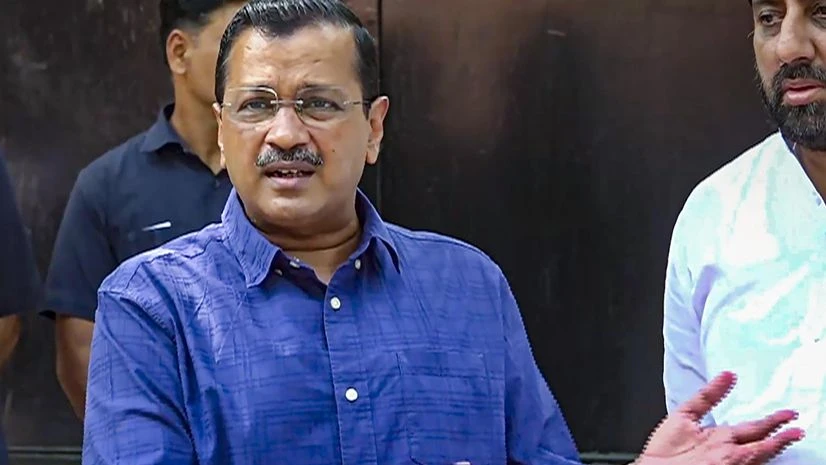American tech giant Apple has reportedly refused to unlock and facilitate access to the iPhone used by Delhi Chief Minister Arvind Kejriwal, saying that the data can only be reached with a password set by the device’s owner.
Kejriwal was arrested on March 21 in the Delhi excise policy case and according to news reports that night he switched off his iPhone and refused to share its password with the authorities.
According to a report in The Print website, the Enforcement Directorate (ED) approached Apple "informally” to get access to Kejriwal’s phone as part of its investigation of the case but the company refused its request.
A source told the website, “There was no written communication but Apple was asked to help with opening Kejriwal’s phone as it is required to assist in the investigation, but the request was denied." Kejriwal reportedly told ED officials during questioning that getting access to his telephone data and chats would mean the federal agency would be privy to details of the Aam Aadmi Party's (AAP) "election strategy" and pre-poll alliances.
The ED told a court in Delhi that Kejriwal gave “evasive replies” in five statements between March 23 and 27. The agency further said that it has “sufficient proof” and “statements of other accused” to establish that Kejriwal is an accused in the Delhi liquor scam.
An ED official said that Kejriwal was aware of “how undue favours were being extended to the licencees like waivers and reduction in the licence fee, and the extension of the L-1 licence (granted to business entities having wholesale distribution experience in liquor trade) in exchange for kickbacks”.
More From This Section
Apple's history of denying requests to unlock devices
This is not the first time that Apple has refused to unlock iPhones for law enforcement agencies. In 2020, the company refused to unlock the iPhone used by Mohammed Saeed Alshamrani, a second lieutenant with the Saudi Air Force after he killed three Americans at the Pensacola Naval air station. Following this, the Federal Bureau of Investigation (FBI) asked Apple to unlock the device which would help in further investigation, but the tech company refused.
Similarly, in 2016, a US federal judge asked Apple to help the FBI in unlocking iPhones of two suspected terrorists, Syed Rizwan Farook and Tashfeen Malik, associated with the 2015 San Bernardino attack. The judge had asked the company Apple to provide “reasonable technical assistance” to the FBI. However, Apple, in this instance too, declined to help the FBI.
Tim Cook defends Apple
Tim Cook, chief executive officer of Apple, has defended the policy and said Apple guarantees to secure its users privacy and safeguard their civil liberty.
“This case (involving Farook) is about much more than a single phone or a single investigation, so when we received the government’s order we knew we had to speak out,” he said.
Apple has “no tolerance or sympathy for terrorists,” but complying with what the Department of Justice’s orders would set a dangerous precedent. “At stake is the data security of hundreds of millions of law-abiding people and setting a dangerous precedent that threatens everyone’s civil liberties,” Cook said.

)
